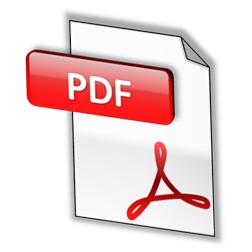

Support instruments for spanish business internationalization
102796
2024-25
MASTER'S DEGREE MBA IN INTERNATIONAL MANAGEMENT
2
MANDATORY
Cuatrimestral
Spanish/English
Day 1: 3 hours
This will be devoted to reviewing the basic content being studied with
the students:
• Introduction: ICEX: mission, strategy, objectives, organisation and
institutional cooperation.
• Training programmes and services
• Information services
• Practical exercises
Day 2: 3 hours
• Advisory Services
• Trade promotion instruments
• Practical exercises
Day 3: 3 hours
• Financial support instruments
• Practical exercises
Day 4: 3 hours
• Investment attraction services
• Overview of the module and practical exercises
CO1 - To learn about business management analytics in dynamic and complex
environments, such as the international environment.
CO2 - To acquire a body of theoretical and practical knowledge and
learning skills, which will enable those who remain interested to pursue
further, more specialised studies in the field of advanced research or
doctoral studies.
CO3 - To master the basic tools of information and communication
technologies for exercising of their profession and for learning.
CO4 - To understand the concepts, theories and instruments for analysing
and developing business internationalisation plans.
CO7 - To know the structure and functioning of the organisations and
institutions that support companies’ internationalisation.
CO8 - To know the main legal and fiscal aspects that directly or
indirectly affect business internationalisation processes.
CO13 - To learn to incorporate the concept of sustainability in business
and institutional projects, identifying its specific areas of practical
application.
CO14 - To learn to incorporate other SDG concepts, which are also
relevant for international companies, in their projects, identifying their
specific areas of practical application.
S1 - To apply the theoretical and practical knowledge acquired, with a high
degree of independence, in both national and international companies, be they
small or medium-sized or companies of a more multinational dimension, and even
in non-business organisations whose management requires an international
vision.
S2 - To apply the analytical skills acquired in defining and approaching
new problems and in searching for solutions both in a national and
international business context.
S3 - To be able to collect, record and interpret macroeconomic data,
country information, industry and business information, financial and
accounting data, statistical data, and relevant research results to
systematise business decision-making processes in international environments.
S4 - To apply the appropriate procedure to achieving an international
business objective.
S5 - To assess the relationship between enterprises and the
institutional framework in which activities are carried out.
S6 - To manage digital platforms, technological, audiovisual and
computer media to search for information and for effective communication of
business projects.
S7 - To manage software and statistical programmes for data recording
and analysis.
S9 - To manage a business internationalisation project and assume
managerial responsibilities.
C1 - To work in multidisciplinary and multicultural teams, in highly demanding
situations in terms of time (deadlines for designing and executing projects
and cases) and results.
C2 - To develop business and personal activities within the strictest
ethical and socially responsible behaviours, as well as to develop sensitivity
towards social and environmental issues.
C3 - To express themselves correctly, both orally and in writing, in
Spanish and English, maintaining an appropriate image in their professional
activity.
C4 - To lead the process of designing the international strategy.
C6 - To lead and develop international business negotiation processes.
Type of activity
TA1.- Master classes
TA2.- Practical classes
TA3.- Individual and group work
TA5.- Individual student work
Hours
% On site
10
100
6
100
5
10
29
0
The course is divided into four sessions of three hours each, where the
different contents will be dealt with and the resolution of practical case
studies will be worked on.
Throughout the module, we will review the different programmes and instruments
for training, information, advice, commercial promotion, financing and
investment that ICEX, to a greater extent, and other bodies of the Central and
Autonomous Administration offer for Spanish companies to go abroad.
Ultimately, students are expected to be aware of the full range of
resources available to them when they join an internationally active private
company.
The evaluation of the course in its ordinary exam session is made up of:
60% Theoretical exercise consisting of a multiple-choice exam at the end
of the module with questions on the contents taught.
40% Resolution of a practical case study on the subject taught in the
different sessions of the module. The case study presented by the lecturer
after the face-to-face sessions must be solved in groups and uploaded to the
virtual campus on the date indicated by the lecturer.
(+/-)10%: Evaluation according to the participation of each student,
both quantitative (number of interventions) and qualitative (timeliness and
quality of interventions) during class sessions, as well as the attention paid
in class and attitude towards classmates and teachers.
In the 2nd and subsequent exam sessions, the grade will depend on the
test(s) (written test type, essay type, assignments, oral tests, etc.), which
will be determined by the teachers and communicated to the students
sufficiently in advance.
Porfessor responsible for the subject
This document can be used as reference documentation of this subject for the application for recognition of credits in other study programmes. For its full effect, it should be stamped by UIMP Student's Office.

Description undefined
Cuatrimestral
ECTS Credits: 2
Alvar , Jorge
Teacher responsible for the subject

